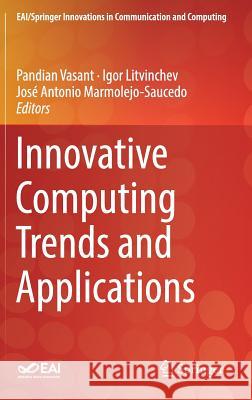Innovative Computing Trends and Applications » książka
topmenu
Innovative Computing Trends and Applications
ISBN-13: 9783030038977 / Angielski / Twarda / 2019 / 113 str.
Kategorie:
Kategorie BISAC:
Wydawca:
Springer
Seria wydawnicza:
Język:
Angielski
ISBN-13:
9783030038977
Rok wydania:
2019
Wydanie:
2019
Ilość stron:
113
Waga:
0.36 kg
Wymiary:
23.5 x 15.5
Oprawa:
Twarda
Wolumenów:
01
Dodatkowe informacje:
Wydanie ilustrowane











